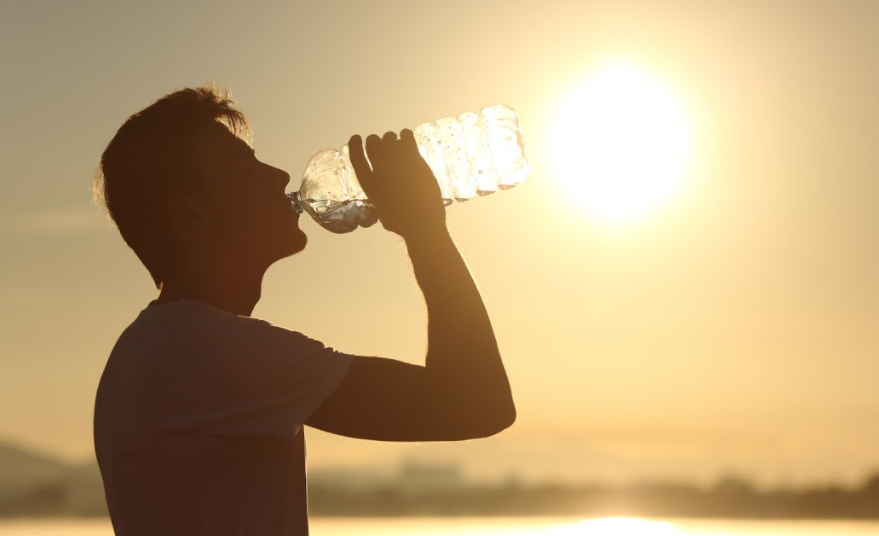7 Potential Benefits Of Electrolytes In Your Diet
12/01/2021
Electrolytes are minerals that conduct an electrical charge when dissolved in water. These minerals produce energy and are maximized by your body to facilitate crucial system functions. These minerals include sodium, potassium, calcium, and magnesium. Notably, electrolytes are found and consumed from certain kinds of food and fluids.
Both fluids and electrolytes are needed for the proper operation of your cells, muscles, and organs. Electrolytes manage the balance of fluid, support hydration, and retain energy in your body. Likewise, these are responsible for initiating muscle contractions, including the muscles that keep your heart beating. With all of these, electrolytes are crucial for both health and survival.
The Potential Benefits of Electrolytes In Your Diet
Considering their significance, electrolytes are recommended by dieticians to be incorporated in your diet. They have a lot of notable benefits to your body:
#1 Improves Exercise Performance
Proper diet and supplementation are excellent ways to help balance those electrolytes and aid in recovery from strenuous exercise. You need additional fluids to replenish the water lost in sweat during exercise. Sweat contains electrolytes — significant amount of sodium and small amounts of potassium, calcium, and magnesium.
Water loss of as little as 1–2% of your body weight can diminish strength, speed, alertness, and concentration. Hence, if you sweat a lot, exercise outside, live in a humid country or work out exhaustively for more than an hour or two, then you may need an electrolyte drink.
It’s recommended to drink electrolyte drinks rather than regular water before, during, and after the entire workout session to aid in your exercise performance. This should also be done to replenish the lost fluids, carbohydrates, and electrolytes in your body.
#2 Rehydrates During Illness
In certain cases, electrolyte replacements are critical to those who are sick.
For shorter periods, vomiting and diarrhea are commonly not serious conditions. However, severe symptoms can quickly lead to dehydration when fluids and electrolytes are not replaced. When you’re experiencing nausea, you may have difficulty consuming fluids. At the same time, when you’re continuously vomiting, you may also lose water instantly. A compendium of these situations may result to loss of electrolytes.
Moreover, individuals with fever may have less motivation or interest to drink fluids. Severe cases may even result to hospitalization.
To avert dehydration, people who are sick may benefit from electrolyte-enhanced water during the initial signs of illness. Drinking electrolyte water prevents dehydration, not only because of the water it supplies, but also due to sodium’s role to sustain water in your body.
Additionally, refrain from drinking other beverages such as coffee, tea, and sodas if you’re experiencing this condition. These are diuretics which may pull more water and electrolytes from your body.
#3 Facilitates Muscle Performance
Apart from its impact on building muscle, a healthy diet which incorporates electrolytes can facilitate prolific muscle performance. Electrolytes are necessary for normal muscle contraction and relaxation. Catherine Whitehouse, M.S., a nutritionist in Kentucky Equine Research (KER) stated that when electrolytes become depleted or imbalanced, muscle cramps and lethargy may occur.
The electrical charge aids in muscle contraction. In physiological terms, this is called an action potential and is critical to produce movement. Thus, the body strictly manages the concentration of each electrolyte to support action potentials. Electrolytes can carry a positive (cation) or negative (anion) charge and dissolve in body water to create a solution that promotes electricity.
Major anions in the body include chloride, bicarbonate, and phosphates. These help conduct electrical charges; for this reason, consume foods that contain electrolytes to balance the energy used for proper muscle function.
#4 Influences Blood Pressure
Hypertension is a major risk factor for atherosclerosis and several diseases, particularly renal and cardiovascular disorders. This includes, but is not limited to, myocardial infarction, stroke, and heart failure. Blood pressure is affected by various genetic and lifestyle factors, including nutrition.
A diet that incorporates electrolyte-rich food is essential to maintain mineral balance. Notably, food that harbors high amounts of potassium are important in managing high blood pressure (HBP or hypertension) because potassium reduces the effects of sodium. The more potassium you consume, the more sodium you lose through urine.
Moreover, potassium helps to ease tension in your blood vessel walls; consequently, this helps further lower blood pressure.
#5 Averts Heat Stroke
Hot environments contribute to a variety of heat-related diseases. This ranges from mild heat rash to life-threatening heatstroke. Your body regularly manages this by releasing heat through your skin and through perspiration. However, this cooling system may start to derail due to extreme humidity. This may cause your body temperature to rise detrimentally.
To avert this from occurring, limit your time under the sun. Additionally, consume plenty of fluids and electrolyte-enriched food to help your body stay cool. Likewise, you may integrate electrolyte-enhanced water over other beverages because of its ability to quench and replace the vital electrolytes.
#6 Boosts Water Intake
Not a fan of plain water? Then opt for flavored electrolyte water and incorporate it into your diet. This offers a lot of benefits and may encourage you to increase your water intake.
Moreover, if you’re an athlete, drinking water optimizes your performance during the game. Hence, try to stay hydrated at regular intervals rather than waiting to feel thirsty. Watch out for signs of dehydration such as headaches, lethargy, dizziness, and dark urine.
#7 Support Nervous System Function
Regardless if you’re an athlete or not, you need to keep hydration and fluid levels balanced. Consistent hydration keeps you safe and, ultimately, more active. Even a small drop in hydration can result to decreased cognitive abilities, focus and alertness, and reaction times.
Your nervous system is a multifaceted area of nerves and specialized cells that deliver and receive signals from your brain to other parts of your body. Notably, electrolytes play an integral role in that communication process.
For this reason, your diet should incorporate enough sources of sodium, potassium, and magnesium to meet your optimum daily intake. Sustaining yourself with sufficient electrolytes may aid in supporting continued brain function. A convenient way to reach your daily target is by consuming electrolyte-enriched food.
Summing It Up
With all its benefits, it’s no wonder why a lot of individuals are learning to be mindful in integrating electrolyte-enriched food and drinks in their diet. Notably, integrating electrolytes into your regular meals optimizes various bodily functions. Moreover, electrolytes allow you to remain hydrated throughout the day, particularly during exercise, illness, or excessive heat.
Thanks for reading,

Nick Screeton – LEP Fitness